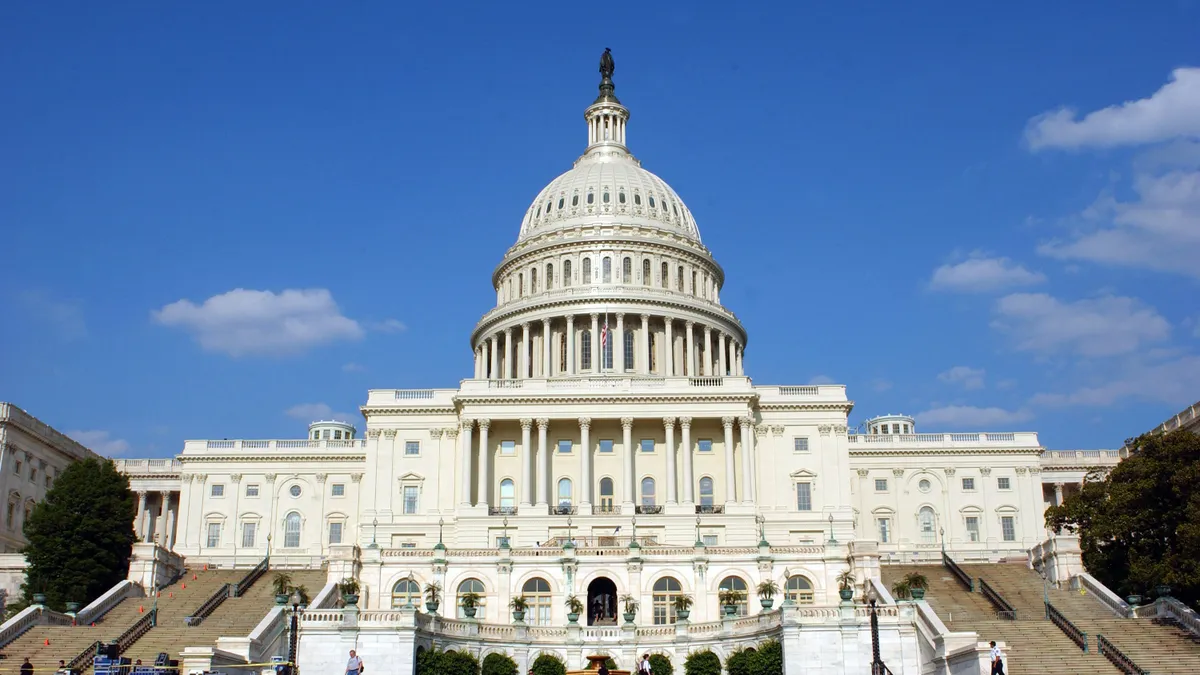Members of the House Financial Services Committee spent nearly five hours Tuesday debating the best way for the federal government to regulate stablecoins, an increasingly popular type of cryptocurrency backed by the U.S. dollar and other fiat currencies. A consensus proved elusive.
The President's Working Group on Financial Markets (PWG) issued a report last year calling on Congress to address the market risks of digital currencies by passing legislation to improve oversight and provide increased protection to investors.
Committee members on Tuesday battled with each other over how best to implement those recommendations as they quizzed a lone witness, Nellie Liang, the Treasury Department's undersecretary for domestic finance.
Among the PWG’s recommendations is to require that all stablecoin issuers be insured depository institutions (IDIs) like federally insured banks and credit unions. Some on the committee, including Rep. Patrick McHenry, R-NC, the panel's ranking member, argued the requirement was unnecessary.
"Washington's knee-jerk reaction to regulate out of fear will not allow stablecoins to achieve their full potential in the myriad of solutions that they may be able to present," McHenry said Tuesday. "This new technology, like all financial technology, deserves appropriate and thoughtful regulatory approaches."
Meanwhile, researchers at the New York Fed this week said stablecoins are "unlikely to be the payment of the future." Asserting that stablecoins may unnecessarily tie up liquidity and introduce risk, the researchers instead tout the benefits of tokenized deposits, which can also circulate using digital ledger technology, according to a Monday blog post.
Cryptocurrency skeptics, such as House Financial Services Committee Chair Maxine Waters, D-CA, argue the public needs to be protected from the risks of stablecoins, although she noted in remarks Tuesday that digital money also presents opportunities for communities of color "that have been left behind by our financial system."
"Investigations have shown that many of these so-called stablecoins are not, in fact, backed fully by reserve assets," Waters said. "Moreover, due to speculative trading, and the lack of investor protections, stablecoins could even threaten U.S. financial stability."
"Simply labeling something as stable or overly relying on a one-to-one ratio does not, in itself, mean it maintains a stable value," she said.
There is an urgent need to regulate stablecoins because of the financial risk they pose amid their growing popularity, Liang said Tuesday. Market capitalization of stablecoins has jumped from $5.7 billion in late 2019 to $155.6 billion as of last month, the New York Fed researchers said.
"Some of the largest stablecoin issuers operate with limited regulatory oversight, raising significant questions about whether their stablecoins are adequately backed," Liang said. "Even where a stablecoin issuer is subject to oversight, supervisors may not have sufficient visibility into the broader operations that support the use of stablecoins, which may be distributed among multiple entities."
Further, she added: "Neither state money transmitter nor securities law requirements are designed to address the financial stability, payment system, or concentration of economic powers [from] a payment instrument. It is based on new distributed ledger technology."
Liang expressed support for draft legislation from Rep. Josh Gottheimer, D-NJ, that would allow only banks and Federal Deposit Insurance Corp. (FDIC)-insured nonbanks to issue stablecoins, according to an interview with Yahoo Finance. However, Liang said she hadn't seen details of the bill.
Gottheimer's proposal "allows for a clear supervisory framework and gives regulators visibility into the entire stablecoin arrangement, including the wallet provider, custodian, and other providers critical to how stablecoins could function as payments," Yahoo reported.
For his part, Gottheimer told Politico last week he plans to introduce the bill in the coming weeks. A spokesperson for the representative didn't respond to a emailed request for comment.
















